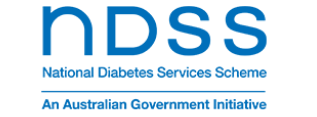Giving parents or carers knowledge to help their children stay safe and healthy at school
All parents of young people with type 1 diabetes want their children to be safe, healthy and supported at school and to be able to enjoy school like any other child. The Diabetes in Schools program aims to give parents the peace of mind that their child’s type 1 diabetes can be well managed while at school.
Parents/carers play an important role in making sure the school is informed and kept up to date on their child’s
type 1 diabetes management. They will work with principals, designated school staff and health professionals to ensure that everyone involved knows what they have to do to keep their child healthy, safe and able to take part in all the opportunities of school life.
Diabetes in Schools: A Team Approach
It takes a team approach to support students to manage their type 1 diabetes in the school environment.
Parents or carers, principals, school staff and health professionals need to work together to ensure that students with type 1 diabetes are supported during their time at school.
The needs of every student with type 1 diabetes differ so everyone plays an important role and needs to work together to make sure that students with type 1 diabetes stay healthy, safe and able to participate fully at school.
- Young people with type 1 diabetes should be encouraged to take a proactive role in managing their own health needs. They should be encouraged to participate in decisions about the management of their condition so that they have the confidence to tell school staff and their parents or carers what support they might need at school.
- Clinical treating teams are the health professionals who work with families to support and treat children and young people with diabetes. They are often hospital-based, including a medical specialist (endocrinologist), credentialled diabetes educator and others. Clinical treating teams play a significant role in developing the diabetes management plan. The diabetes management plan describes what is needed to manage a child’s type 1 diabetes. It includes important information on the medical treatment the child needs, including understanding and monitoring blood glucose level ranges and how insulin is administered. It is important that the student’s clinical treating team keep the plan updated as this is what parents/carers and the school will use to determine the support that will be provided in the school environment. The team has a role in providing information, advice and training to parents/carers and the school.
- Schools have an important role in ensuring that students with type 1 diabetes experience a supportive and inclusive learning environment, and a key aspect of this is ensuring that their health and care needs are accommodated. In order to ensure students with type 1 diabetes are able to participate fully in school life and reach their full learning potential schools will at times need to make reasonable adjustments to support their students’ type 1 diabetes management. The school should discuss proposed adjustments with parents/carers and agree upon the supports that will be provided to a student with type 1 diabetes to enable them to participate fully in school and educational activities. This may include meeting the student’s daily health care needs; including support with monitoring blood glucose levels and administering insulin.
- Parents or carers will need to work closely with principals and designated staff in schools. The principal has an overarching responsibility to ensure that all school staff receives the appropriate training about how
type 1 diabetes can affect students. Principals should identify staff members, known as designated staff, who volunteer to take on the responsibility of supporting a student with managing their type 1 diabetes at school. In some states, responsibility for supporting student health needs will already be agreed as part of the staff member’s condition of employment. Designated staff will undertake additional training both online and from a healthcare professional to equip them with the skills, knowledge and understanding to provide the necessary support to students with type 1 diabetes. It is important for parents or carers to keep in close communication with designated staff about any changes to the student’s condition or treatment needs.
The role of parents or carers
Parents or carers of children with type 1 diabetes have the overall responsibility for their child’s health and well-being. Parents/carers help make important decisions about their child’s health care and treatment and advocate for their child’s best interests when working with other members of the school diabetes team.
Although parents and carers play an important role in terms of making decisions about their child’s type 1 diabetes they should, alongside principals and designated staff, involve the child as much as possible in decisions about managing their type 1 diabetes at school. As children mature, so too will their capacity to make decisions and their ability to self-manage their type 1 diabetes.
Parents/carers will work closely with designated staff to:
- ensure that their child receives appropriate care and treatment for their type 1 diabetes
- ensure that their child’s type 1 diabetes is managed safely and effectively in the school setting
- ensure that their child can participate fully in their education and all the opportunities of school life.
Parents/carers can help make this happen by taking responsibility for communicating with designated staff and providing them with up-to-date and accurate information for the safe and effective management of the child’s type 1 diabetes.
To help make this happen parents/carers should:
- inform the school when their child is diagnosed with type 1 diabetes, or when their child is moving to a new school
- communicate and work with the doctors and health professionals in the clinical treating team to develop a diabetes management plan for their child
- communicate and work with the school principal and/or designated staff to agree on a plan for how the school can implement the diabetes management plan
- work with the school principal and/or designated staff to agree upon the adjustments required to support their child’s participation and engagement in school and educational activities
- give consent that authorises designated staff to help and support their child with type 1 diabetes management during school times, this may include insulin administration where relevant
- give consent to health professionals and designated staff to communicate with each other and other relevant agencies (such as the State or Territory education department) about their child’s type 1 diabetes needs, so far as is necessary to allow the school to provide support to manage the young person’s diabetes
- keep the school updated about any changes to the diabetes management plan, including changes to the child’s condition or treatment needs and provide a copy of the updated plan to the school when this occurs
- ensure that their child is provided with the necessary supplies to manage their type 1 diabetes during school times, including insulin, blood glucose testing equipment, food and drinks.
Providing consent
Parents/carers need to give appropriate consent to enable school staff to provide students with the support and assistance required to effectively implement the diabetes management plan. This consent gives authorisation for school staff, including the designated staff members, to provide the physical support necessary to carry out key tasks in supporting a student’s diabetes management which may include monitoring blood glucose levels and administering insulin where necessary.
Consent from parents or carers is also needed for the disclosure of information. This ensures that there is effective communication and that school staff have the information they need to support the student. This consent permits the disclosure of private and confidential information concerning the student’s type 1 diabetes and health needs to others involved with safeguarding the best interests of students with type 1 diabetes including other school staff, external agencies (such as the education department or the child’s diabetes treating team), and those providing type 1 diabetes education and training to school staff. Information is to be shared so far as is reasonable and required for the effective implementation of the diabetes management plan in the school setting with the purpose of supporting the student in the best way possible.
The consent provided by parents or carers should cover:
- the actions that school staff may take to support the student with their type 1 diabetes (which may include blood glucose testing and/or administering insulin)
- what was agreed between the parents/carers and the school about how the student’s type 1 diabetes will be managed at school (based on the diabetes management plan) and by whom. This is to be updated if there are changes in the school staff supporting the student
- whether the student is capable of self-managing their type 1 diabetes (including whether they are sufficiently mature and able to give their own consent to getting help).
Consent is an important process of information exchange and agreement between parents/carers and the school about how the student’s type 1 diabetes will be supported at school. It is a process that will need to be updated regularly as things change with a student’s type 1 diabetes management and treatment. For instance, when there is a change to the student’s diabetes management plan it is also a good time to check that the consent is also up-to-date and reflects what is in the plan.
Schools should obtain consent from parents/carers to assist with specific aspects of type 1 diabetes management and medication administration. Without such consent, the school may be limited in the support that can be provided to students with type 1 diabetes.
Reasonable adjustments in schools
Reasonable adjustments are supportive actions that schools can take to support a student’s type 1 diabetes management so students with type 1 diabetes may participate fully in school life and reach their full learning potential. Reasonable adjustments are often required to ensure that students with type 1 diabetes don’t miss out on opportunities at school. Schools should agree upon these adjustments with a student’s parents/carers, and implement them in a way that helps support the student’s needs as set out in the diabetes management plan.
Different students will have different needs for the management of their type 1 diabetes at school. There are a number of key considerations schools must make in determining whether there is a need for reasonable adjustments, including the impact that a student’s type 1 diabetes has on the student, their participation in school activities and educational opportunities, and the cost and affordability for the school in making the adjustments. One of the considerations when determining the adjustments that might be needed is to obtain the student’s views as well as the views of their parents/carers. In order to agree upon these reasonable adjustments, schools should consult with the student and their family.
Reasonable adjustments are practical day-to-day measures that school staff will oversee and implement. They may be as simple as allowing a student to eat during class time or providing a space that the student can use if they wish to check their blood glucose. Reasonable adjustments may also be more complex, such as ensuring that designated staff are appropriately trained to administer insulin or supervise its administration.
The way in which different schools adopt these reasonable adjustments varies widely. Some schools may only make some of these adjustments, for some students, some of the time.
Supporting a student to administer their insulin, or to supervise its administration is likely to be seen as a reasonable adjustment that schools can make. This may result in schools needing to adjust the way that they normally do things so that children with type 1 diabetes can participate fully at school. There is free training for all school staff working in Australian schools to help them understand what type 1 diabetes is, how it affects students, and how schools can support students with type 1 diabetes.
It is important that students (where appropriate), their parents/carers, and the school all agree on the adjustments that will be implemented by the school. The diabetes management plan sets out the individual needs of the student and this helps determine what adjustments are needed to ensure that the plan is followed in the school environment.
When working out the details of how to implement the diabetes management plan parents/carers and the school may have different ideas about what reasonable adjustments are. It is important that there is a discussion around this between parents/carers and the school, and an agreement is reached. The health professionals in the clinical treating team may also be able to assist to clarify aspects of the diabetes management plan and how this may be reasonably implemented in the school environment.
Examples of reasonable adjustments that may be made by schools include:
- additional communication between designated staff and the student’s parents or carers
- supporting the use of continuous glucose monitors in the school setting, including allowing students to use mobile devices to sync with the continuous glucose monitors
- supporting the use of insulin pump therapy for the administration of insulin
- supervising or administering insulin by way of injection or via pump
- allowing students to access food during class or during other activities
- allowing students to access their medical equipment during class time
- providing additional breaks to allow students to check their blood glucose levels and for the administration of insulin
- allowing the student to have extra toilet breaks
- providing an appropriate area that the student can use to test their blood sugar and/or administer their insulin (if they wish to use it) and
- giving extra time or special consideration for exams and/or assignments.
(This is not an exhaustive list.)
Managing expectations
It is important that parents or carers and schools work together and agree on what type 1 diabetes support the student needs during school times. Often the level of support that may be provided to help manage a young person’s type 1 diabetes at home cannot be reasonably provided in the school environment because of the responsibility that school staff have for all students under their care.
There may be times when the school and the parents have different ideas about the level of support needed in the school environment or the adjustments that should be made. In some instances it may not be possible for everyone to agree completely on this.
Issues can occasionally arise because of miscommunication between the school and the parent/carer. If there is a disagreement that cannot be resolved between the child’s diabetes treating team, parents/carers, and the school’s leadership, it may need to be escalated to more formal mediation processes.
Most state and territory departments of education, Catholic Education Commissions and independent school associations have formal processes to facilitate disagreements between parents or carers and schools.
Training for all schools
The Diabetes in Schools program provides three levels of training to independent, Catholic and public schools.
All school staff should have a basic awareness of type 1 diabetes and know how to recognise the signs of emergencies such as hypoglycaemic episodes. Additional training for designated staff is available face-to-face or online. This training has been developed to equip schools and school staff with the education, knowledge, skills and understanding that is necessary to support students with type 1 diabetes in the school environment. >> Learn more about training for schools







